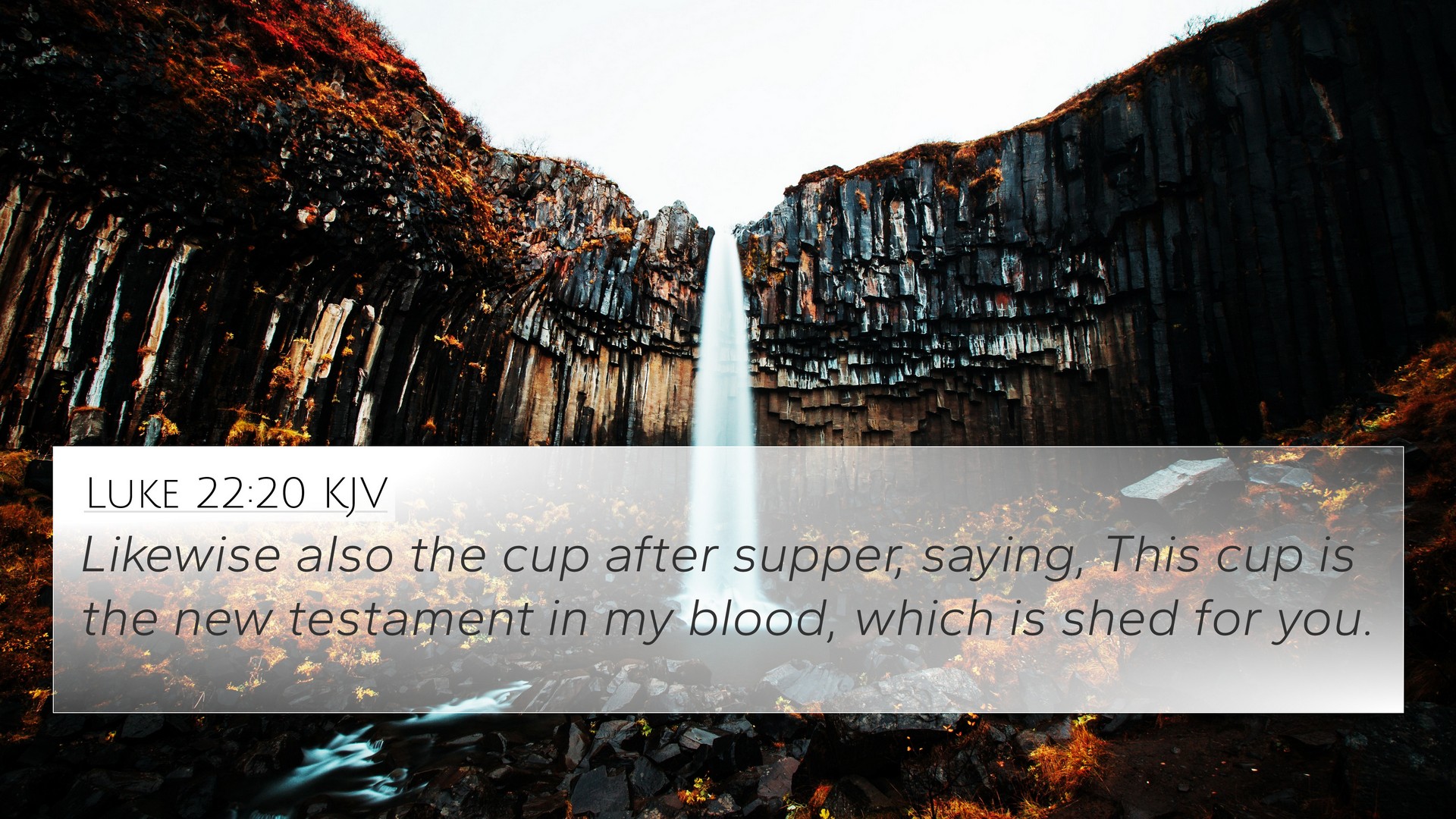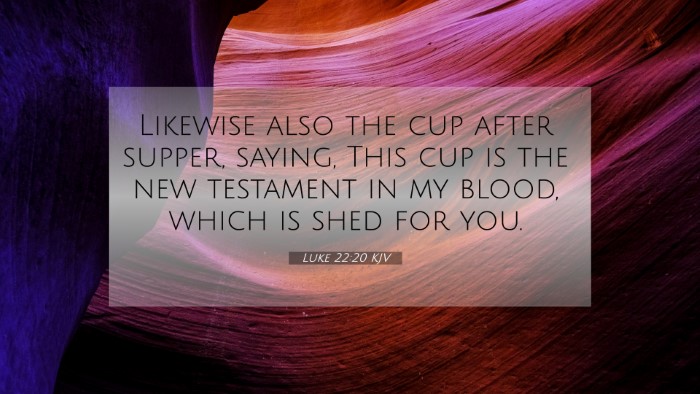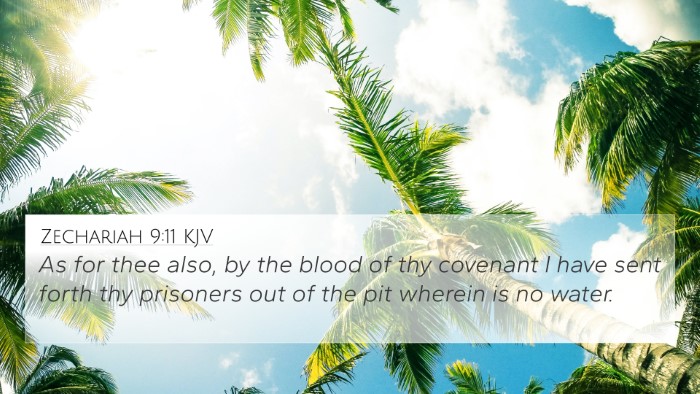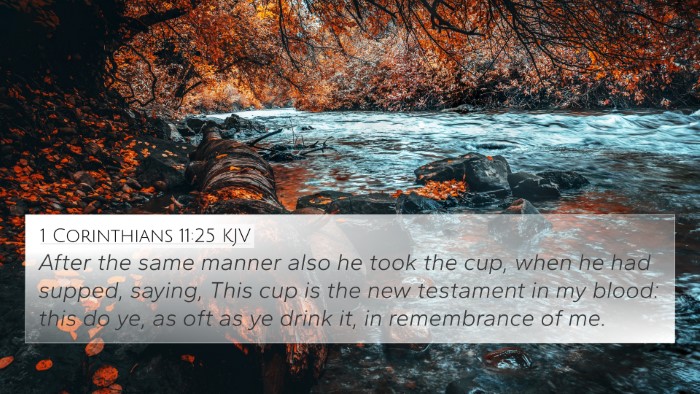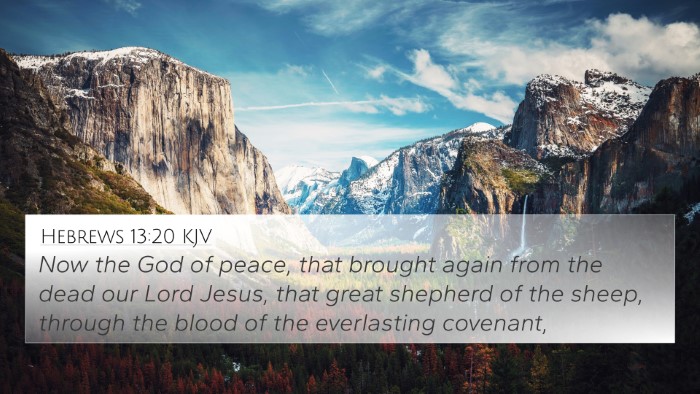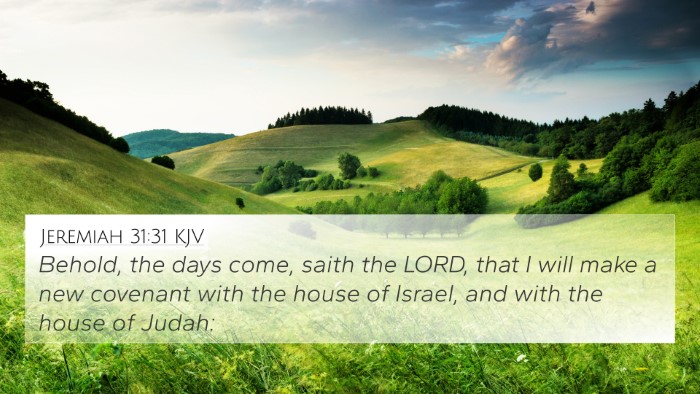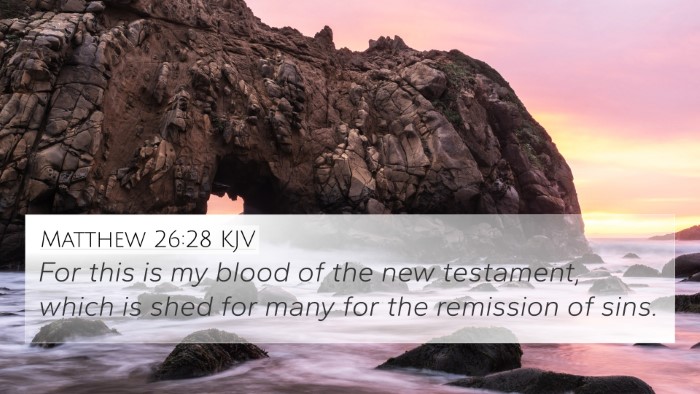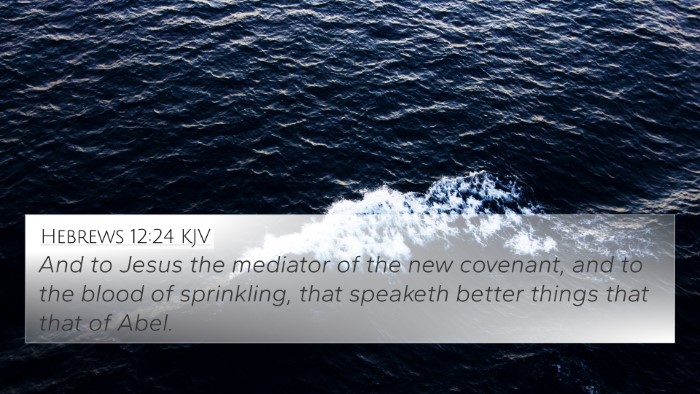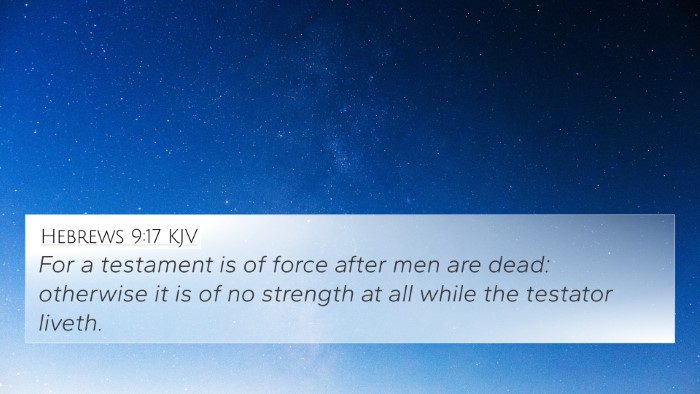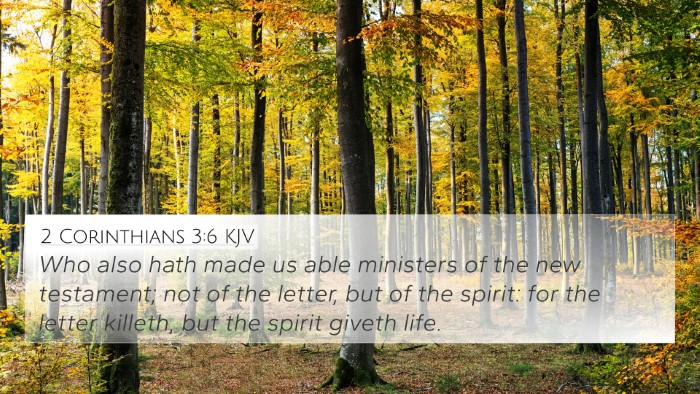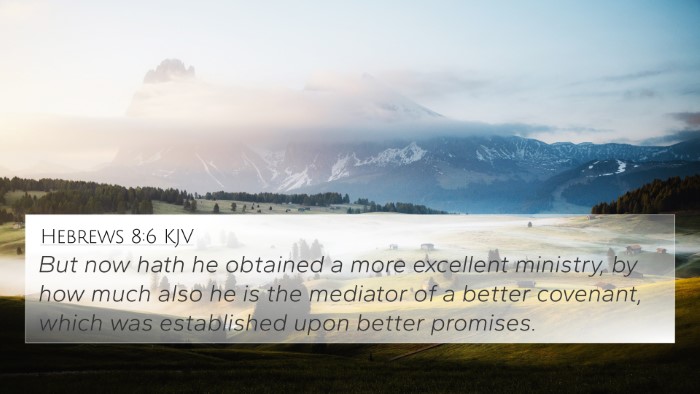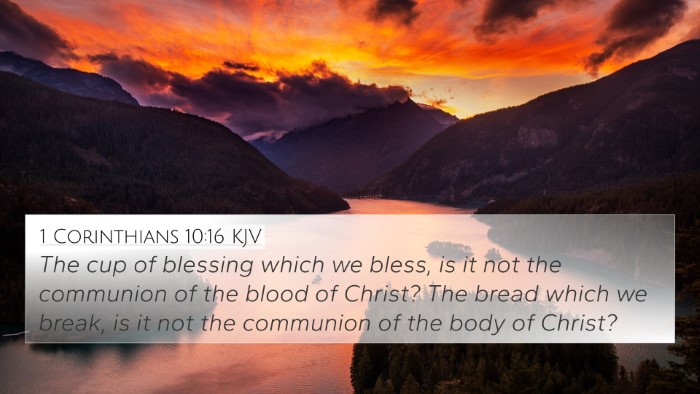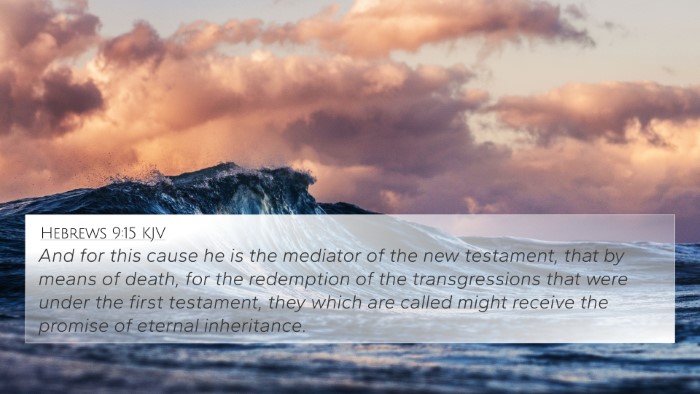Understanding Luke 22:20
Luke 22:20 states: "Likewise also the cup after supper, saying, This cup is the new testament in my blood, which is shed for you." This pivotal verse is part of the account of the Last Supper, where Jesus institutes the Lord's Supper, also known as Communion.
Meaning and Significance
This verse emphasizes several key theological themes, particularly the new covenant established through Jesus' sacrificial death. The idea of the "new testament" or "new covenant" is central to Christian theology, as it signifies the fulfillment of God's promise to humanity through the blood of Christ.
Insights from Public Domain Commentaries
-
Matthew Henry:
Henry highlights that Jesus' reference to the cup symbolizes the blood of the new covenant. He emphasizes the transition from the old covenant (illustrated by the Passover) to the new covenant, which brings salvation and reconciliation between God and humanity.
-
Albert Barnes:
Barnes focuses on the significance of the “new testament” being established through the blood of Christ. He discusses how this new covenant offers a more profound relationship between God and believers, contrasting it with the old covenant that was based on the law.
-
Adam Clarke:
Clarke elaborates on the notion of the cup representing the blood of Christ. He stresses the importance of remembering this act of sacrificial love, as it underscores the foundation of the Christian faith, where Jesus takes upon Himself the sins of the world.
Thematic Connections to Other Scriptures
To fully appreciate Luke 22:20 and its implications, it is beneficial to explore connections with other Bible verses. Here are some key cross-references:
- Matthew 26:28: "For this is my blood of the new testament, which is shed for many for the remission of sins."
- 1 Corinthians 11:25: "After the same manner also he took the cup, when he had supped, saying, This cup is the new testament in my blood. This do ye, as oft as ye drink it, in remembrance of me."
- Hebrews 9:15: "And for this cause he is the mediator of the new testament, that by means of death, for the redemption of the transgressions that were under the first testament, they which are called might receive the promise of eternal inheritance."
- Jeremiah 31:31: "Behold, the days come, saith the Lord, that I will make a new covenant with the house of Israel and with the house of Judah."
- Exodus 24:8: "And Moses took the blood, and sprinkled it on the people, and said, Behold the blood of the covenant, which the Lord hath made with you concerning all these words."
- John 6:53: "Then Jesus said unto them, Verily, verily, I say unto you, Except ye eat the flesh of the Son of man, and drink his blood, ye have no life in you."
- Ephesians 1:7: "In whom we have redemption through his blood, the forgiveness of sins, according to the riches of his grace."
- Revelation 5:9: "And they sung a new song, saying, Thou art worthy to take the book, and to open the seals thereof: for thou wast slain, and hast redeemed us to God by thy blood out of every kindred, and tongue, and people, and nation."
Conclusion
In summary, Luke 22:20 serves as a profound reminder of the depth of Jesus’ sacrifice and the establishment of a new covenant through His blood. This covenant not only connects the Old and New Testaments but also offers believers an opportunity for a personal relationship with God. By understanding this verse in its biblical context, bolstered by the insights from various commentaries, we can appreciate the rich theological tapestry woven through Scripture.
Tools for Bible Cross-Referencing
For those seeking to explore and study the connections in Scripture further, several tools and methods can assist:
- Bible concordance: A comprehensive tool to find verses related to specific keywords.
- Bible cross-reference guide: Resources that provide links between verses throughout the Bible.
- Bible reference resources: Online and print tools to help locate and study biblical cross-references.
- Cross-reference Bible study: Techniques for studying the relationships between scripture passages.
- How to use Bible cross-references: Understanding the methodology behind finding and applying cross-references in biblical study.
Further Study: Exploring Bible Verse Connections
The process of linking Bible scriptures not only enhances our understanding of specific verses but also deepens our grasp of overarching biblical themes. For instance, one can examine:
- Identifying connections between the Old and New Testaments.
- Conducting a detailed cross-reference between the Gospels.
- Exploring links between the Prophets and Apostolic teachings.
In-depth study of these connections can lead to a more profound spiritual growth and understanding of God's Word.
